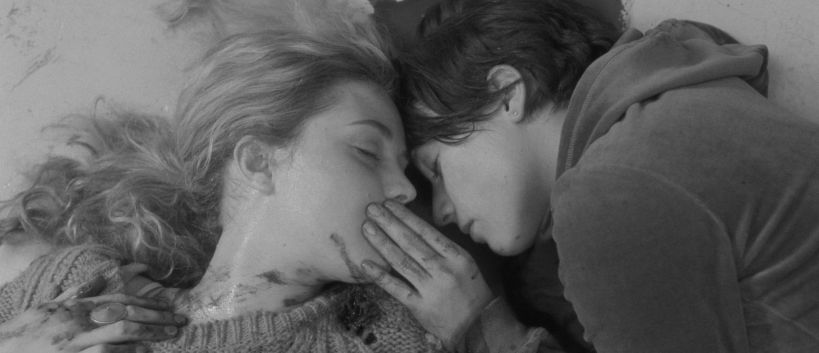Denis Villeneuve is one of the few directors, whose each film is a uniquely beautiful and haunting experience for me. Today, we know him the most by his Oscar-nominated Prisoners and Sicario, but the Canadian director debuted with a piece that deserves much recognition – Polytechnique is a feast for eyes and a poke for one’s mind.

A casual day for a higher education institution in Montreal turns into a blood-soaked tragedy, when a troubled individual enters the university and shoots out every woman he encounters. The film, based on true events, focuses on the impact of the crime, showing various bystanders and victims, as well as the killer himself.
Villeneuve’s drama is not a typically structured film – we reach the climax somewhere in the middle of the screening, as the massacre takes place. The director does that to explore different points of view in frames of the same story, centered around one event, but in various points of the timeline. Therefore, Villeneuve “visits” the murderer just before the day he committed the genocide, takes a glance at the victims, but also the third parties – survivors, who witnessed the unspeakable chaos of the shootout. All in all, even though his film is concise, it’s precisely examining the surroundings of the crime – the chain reaction of devastation and things falling apart one by one.
There is a peculiar beauty in Villeneuve’s approach towards the tragedy in the titular school. This hidden beauty lies in the way the Canadian filmmaker seeks for the reflection of the crime in its surroundings – not in hurt people, but the empty corridors, blistering lights, notes and books left in a hurry. These symbols hit even harder than the violent crime itself – once a lively and vigorous place becomes a haunting shadow reminding of death and sorrow.

Interestingly, neither any explanations nor judgments become the essence of the film too. It’s a structured portrayal of a crime as it is – brutal and unexplainable. What’s more, Polytechnique bears the same features regarding the soundtrack as all the other works of the Canadian director. The music enters only in the most emotional moments, leaving space for silence to work as well. The cast fits in the distant, cold report of the crime, with Maxim Gaudette as the nameless killer standing out.
Polytechnique was one of the finest debuts in the last few years – a firm, artistic look at a tragedy which has shaken the grounds of a peaceful country. A must-see for the fans of indie cinema and a valuable proposition for those, who seek an intelligent-provoking piece of cinema.
UMP Grade: 37/50